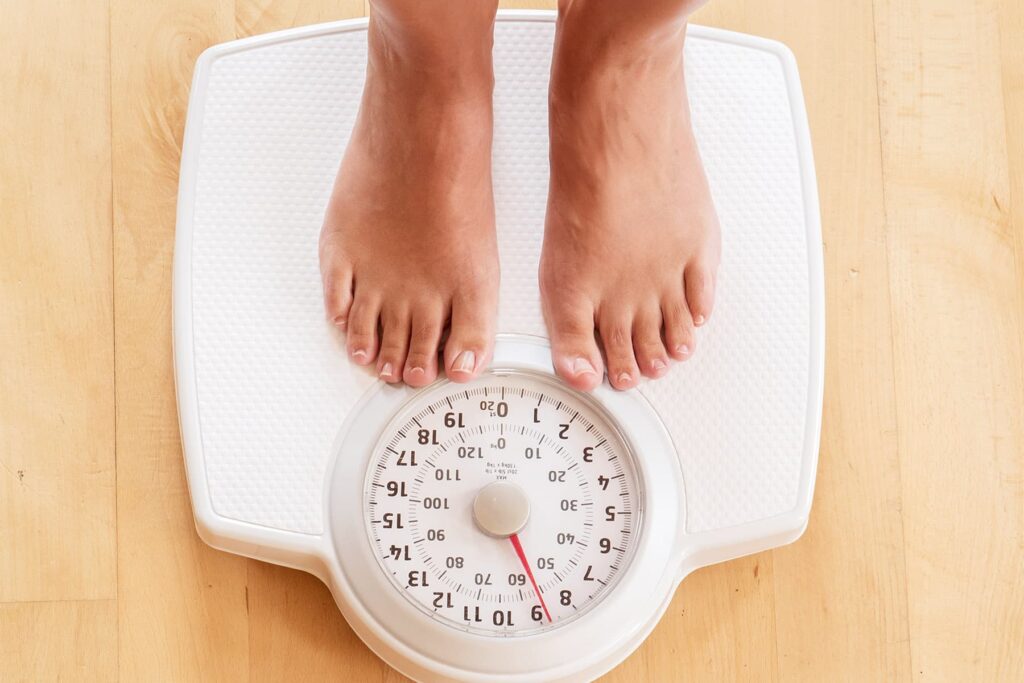Table of Contents
ToggleEffective, Healthy, and Sustainable Weight Loss Tips
Introduction
“Is there a quick fix for weight loss?” This is a question many of us ask when we look in the mirror or step on the scale after the holidays or during periods of stress. With so many fad diets, pills, and so-called “miracle cures” flooding the internet, it’s easy to feel overwhelmed by the sheer amount of information. But here’s the truth: losing weight quickly and healthily requires more than following the latest trend. It takes a combination of science-backed strategies, lifestyle changes, and the right mindset.
In this post, we’ll delve into the science behind rapid weight loss, discuss why some methods are more effective than others, and share actionable steps you can take to achieve your weight loss goals. Whether you’re looking for short-term results or a long-term solution, we’ll break it all down for you.
Can you lose weight quickly? Yes, but let’s do it the right way—without jeopardizing your health or well-being.

1. Understanding Weight Loss: The Science Behind It
Before discussing quick fixes, it’s essential to understand the basics of weight loss. At its core, weight loss occurs when your body burns more calories than it consumes, a process known as a caloric deficit. When your body doesn’t get the calories it needs to sustain your current weight, it starts using stored fat for energy, resulting in weight loss.
But it’s not as simple as eating less or moving more. Other factors, such as hormones, metabolism, and lifestyle, play a significant role in how fast or slow you lose weight.
Key Concept: Caloric Deficit = Weight Loss
Your body burns calories every day through three main mechanisms:
- Basal Metabolic Rate (BMR): The energy your body needs to maintain basic functions like breathing and circulating blood.
- Physical Activity: Calories burned through movement and exercise.
- Thermic Effect of Food: Calories burned from digesting and processing food.
2. Why Quick Weight Loss is Often a Challenge
Losing weight quickly often feels difficult for a few reasons. One of the primary reasons is metabolic adaptation. As you begin to lose weight, your metabolism slows down in response, making it harder to continue losing at the same rate. This is why many people hit weight loss plateaus.
Moreover, extreme calorie restrictions or fad diets can lead to muscle loss rather than fat loss, making future weight loss even more difficult. When you lose muscle, your metabolic rate decreases, slowing down your progress.
Common Challenges of Quick Weight Loss:
- Metabolic slowdown
- Muscle loss
- Difficulty sustaining drastic lifestyle changes
3. Healthy Strategies to Lose Weight Fast
Now that you understand why rapid weight loss can be challenging, let’s focus on how to do it healthily and sustainably. These strategies will allow you to achieve noticeable results quickly without compromising your health.
4. The Role of Nutrition in Weight Loss
Nutrition is the foundation of any successful weight loss plan. To lose weight effectively, you need to create a caloric deficit, but it’s crucial to do this in a balanced way that provides your body with the nutrients it needs.
Caloric Deficit Explained
To lose one pound of body weight, it would be best to create a caloric deficit of about 3,500 calories. This means you should aim to consume fewer calories than you burn each day. However, drastically cutting calories can lead to fatigue, muscle loss, and nutritional deficiencies. A moderate caloric deficit of 500 to 1,000 calories daily is recommended for sustainable weight loss.
Macronutrients: The Key Players
To function properly, your body needs a balance of three main macronutrients—proteins, fats, and carbohydrates. Here’s how each macronutrient supports your weight loss efforts:
- Proteins: Essential for muscle repair and growth. Consuming more protein can also increase the thermic effect of food, meaning you burn more calories digesting it.
- Fats: Necessary for hormone production and brain health. Healthy fats, such as those from avocados and nuts, can keep you feeling full longer.
- Carbohydrates: Your body’s primary source of energy. Choosing complex carbohydrates like whole grains and vegetables will provide lasting energy and prevent blood sugar spikes.
5. Incorporating Exercise for Maximum Impact
While nutrition plays a significant role, exercise is the other half of the equation. Exercise helps increase your caloric expenditure, supports muscle retention, and improves overall health.
Types of Exercise for Quick Weight Loss
- Strength Training: Builds lean muscle, which helps burn more calories even at rest.
- High-Intensity Interval Training (HIIT): Short bursts of intense activity followed by rest periods; known to burn more calories in less time.
- Cardio: Activities like running, swimming, or cycling help improve cardiovascular health while burning calories.
A balanced combination of these types of exercises will help you maximize your results.
6. Hormone Optimization and Weight Loss
Hormones are critical in regulating metabolism, hunger, and fat storage. When hormones are out of balance, losing weight can become more challenging.
How Hormones Affect Your Weight
- Insulin: Responsible for regulating blood sugar levels. When insulin levels are consistently high, fat storage can increase.
- Cortisol: Known as the stress hormone, high cortisol levels can lead to weight gain, especially around the abdominal area.
- Leptin and Ghrelin: These hormones control hunger and fullness. You may feel hungry even after eating when they’re out of balance.
Bio-identical Hormone Replacement Therapy (HRT) as a Tool
For individuals experiencing hormonal imbalances—often seen in those approaching menopause or dealing with thyroid conditions—bio-identical hormone replacement therapy (HRT) may be a game-changer. It can help restore optimal hormone levels, improve metabolism, and make weight loss more achievable. To learn more about HRT and how it may help you, visit our page on Bio-identical Hormone Replacement Therapy and schedule a consultation with Dr. P. John Schanen, APRN.
7. The Importance of Sleep and Stress Management
Most people overlook the importance of sleep and stress management in their weight loss journey. Poor sleep quality and high stress levels can disrupt hormones like cortisol and leptin, making it harder to lose weight.
- Sleep: Aim for 7-9 hours of quality sleep per night to support hormone regulation and recovery.
- Stress Management: Incorporate stress-relieving activities like meditation, yoga, or deep-breathing exercises to control cortisol levels.
8. Avoiding Common Pitfalls and Weight Loss Myths
It’s easy to get caught up in weight loss myths and misinformation. Here are some common pitfalls to avoid:
- Fad diets often promise quick results but are unsustainable in the long term.
- Skipping meals can lead to overeating later in the day and slow your metabolism.
- Diet pills: Many weight loss supplements are unregulated and may not be practical or safe.

9. Practical Tips for Quick and Sustainable Weight Loss
It’s time to take action. Here are practical, step-by-step tips for losing weight quickly and healthily.
Step-by-Step Guide
- Calculate Your Caloric Needs: Use a calorie calculator to determine your daily needs based on age, weight, and activity level.
- Create a Meal Plan: Focus on whole foods, lean proteins, healthy fats, and complex carbs.
- Incorporate Exercise: Aim for at least 150 minutes of moderate exercise per week, with strength training 2-3 times weekly.
- Monitor Your Progress: Keep track of your weight loss with a journal or app.
- Adjust as Needed: If you hit a plateau, consider adjusting your calorie intake or workout routine.
Sample Checklist
- Calculate daily calorie needs
- Plan balanced meals for the week
- Schedule workout sessions
- Get 7-9 hours of sleep each night
- Reduce stress through mindfulness or relaxation techniques
10. Conclusion: Moving Forward With a Healthier Mindset
Losing weight quickly doesn’t mean you have to sacrifice your health or well-being. You can achieve your weight loss goals efficiently and sustainably by combining a balanced diet, regular exercise, hormone optimization, and good sleep habits. Remember, it’s not about perfection—making progress and choosing strategies that work best for you.
If you’re ready to take the next step in your weight loss journey, contact us at (210) 879-4275 to schedule an online, virtual wellness consultation with Dr. P. John Schanen, APRN. Our team at Sana Vida Wellness Center is here to support you, whether you’re in Texas, Colorado, Wyoming, Virginia, New Mexico, Arizona, or Florida.
Let’s work together to help you live a healthier, happier life!




